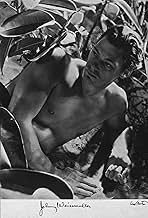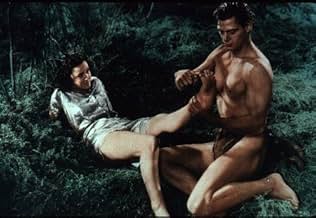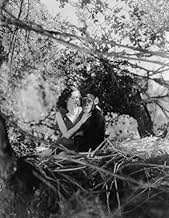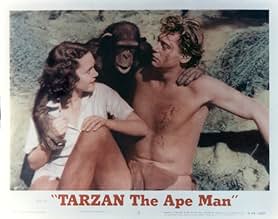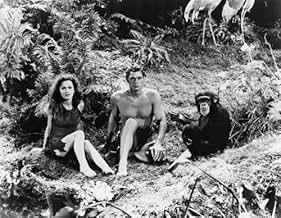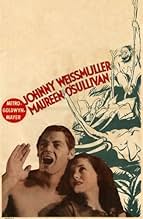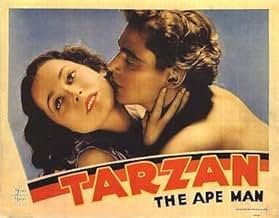A trader and his daughter set off in search of the fabled graveyard of the elephants in deepest Africa, only to encounter a wild man raised by apes.A trader and his daughter set off in search of the fabled graveyard of the elephants in deepest Africa, only to encounter a wild man raised by apes.A trader and his daughter set off in search of the fabled graveyard of the elephants in deepest Africa, only to encounter a wild man raised by apes.
- Awards
- 1 win & 1 nomination
- Evil Dwarf
- (uncredited)
- Evil Dwarf
- (uncredited)
- Evil Dwarf
- (uncredited)
- Evil Dwarf
- (uncredited)
- Ape
- (uncredited)
- Evil Dwarf
- (uncredited)
- Bird Creature
- (uncredited)
- Evil Dwarf
- (uncredited)
- Evil Dwarf
- (uncredited)
- Ape
- (uncredited)
- Director
- Writers
- All cast & crew
- Production, box office & more at IMDbPro
Storyline
Did you know
- TriviaThe elephants used in the early Weissmuller films were not African but Asian elephants with African sized ears strapped on. This practice is still common because the Asian species is much more docile than the African. In later films the fake ears were abandoned altogether figuring no one would know the difference.
- GoofsWhile swimming across a river, Tarzan gives off his full Tarzan yell while his head is completely submerged under water.
- Quotes
Jane Parker: Thank you for protecting me.
Tarzan: Me?
Jane Parker: I said, thank you for protecting me.
Tarzan: [points at Jane] Me?
Jane Parker: No. I'm only "Me" for me.
Tarzan: [points at Jane] Me.
Jane Parker: No. To you, I'm "You."
Tarzan: [points at himself] You.
Jane Parker: No...
[Thinks for a second]
Jane Parker: I'm Jane Parker. Understand? Jane, Jane.
Tarzan: [points at Jane] Jane, Jane.
Jane Parker: Yes, Jane. And you?
[Tarzan stares]
Jane Parker: [points at herself] Jane.
Tarzan: Jane.
Jane Parker: [points at Tarzan] And you?
Tarzan: Tarzan. Tarzan.
Jane Parker: Tarzan...
- Alternate versionsColorized version was available... and shown on TNT
- ConnectionsEdited into Tarzan Escapes (1936)
- SoundtracksVoo-Doo Dance
(uncredited)
Music by George Richelavie
Arranged by Paul Marquardt & Fritz Stahlberg
Played during main title
A success? Thalberg created a legend!
Utilizing MGM's vast library of stock footage (primarily from 1931's TRADER HORN), a primordial Africa that was more pulp fiction than reality was created on the back lot, and veteran British character actor C. Aubrey Smith and 20s matinee idol (and future 'Batman' regular) Neil Hamilton were introduced, as James Parker and Harry Holt, adventurers questing after the legendary 'Elephants' Graveyard'. The arrival of Parker's daughter, Jane (O'Sullivan), a free-spirited, raven-haired beauty, complicates matters, but her stubborn refusal to lease, and confidence with the natives (shown as rear projections behind Smith and O'Sullivan) finally win the two men over, and soon the trio, accompanied by whip-induced native labor, are on safari.
When a dying porter points the way to the Escarpment, a massive 'taboo' mountainous plateau protecting the Graveyard, the party has the missing piece to the puzzle, and begin an arduous climb to the top. (How a massive mountain range could be hidden, for so long, is not explained). After losing a porter, and nearly Jane, on the steep climb, the summit is achieved, and the famous Tarzan yell (a combination yodel/howl, created by MGM's sound department), is first heard. A treacherous river crossing, featuring stock footage of hippos and crocodiles, then costs the safari more bearers, with another yell saving their lives.
All this leads up, of course, to Johnny Weissmuller's first appearance as Tarzan, observing the party from the trees. He is simply magnificent...tanned, slim, smoothly-muscled (as opposed to the brawny body builders later cast in the role) and nearly naked. He soon kidnaps Jane (he may be ignorant, but he's not dumb!), and the incredible chemistry between the pair is exhibited for the first time. While initially terrified of the savage (particularly as he pulls off her clothing parts to examine them), he doesn't 'have his way' with her, and she realizes he is far more sensitive than she'd assumed.
Holt kills the ape guarding Jane (one assumes it is Kala, ape 'mother' of Tarzan, in the ERB books), and Tarzan screams in anguish at his loss. Displaying the racism prevalent in so many 30s films, Jane tries to defend her erstwhile kidnapper to her father ("He's WHITE!"), but the two hunters aren't buying it, and soon wound Tarzan, himself. Jungle animals spirit the bleeding jungle lord away...and Jane is soon at Tarzan's side, bandaging his head, and looking lustily at the big lug! When he recovers, the pair consummate their passion (in a scene tastefully off-camera), and are swapping names ("Jane...Tarzan...Tarzan...Jane").
Tarzan returns Jane, and walks away, despite her pleas to return to civilization with them. The safari is soon captured by a height-challenged native tribe ("Are they Pygmies?" Jane asks; "They're dwarves," her father replies...uh, whatever...), and a gruesome scene ensues of the surviving members being lassoed and dropped into a pit with a giant gorilla (a not-quite convincing guy in an ape suit). Holt is knocked unconscious, Parker is mortally injured, Cheeta is tossed against a wall, and Jane swoons in the gorilla's arms (shades of KING KONG), then Tarzan busts in, to kill the ape and save them all. As the ever-available stampede of elephants mash the dwarves into pulp, Tarzan leads the dying Parker, Jane, and Holt to the 'Elephants' Graveyard', where Jane's father passes away. Holt returns to civilization (he would return in the sequel, TARZAN AND HIS MATE) and Tarzan, Jane, and a recovering Cheeta start an exciting new life together!
Yes, the story is unintentionally campy, the 'apes', and animal fights, unconvincing, and there is blatant racism throughout the film. But as sheer entertainment, Depression-era audiences were enthralled. Weissmuller and O'Sullivan conveyed the kind of eroticism that pre-Code Hollywood was notorious for (and would reach even greater heights in the sequel), the action sequences were spectacular, and a new MGM franchise was born, that would produce six more films over the next nine years.
Thalberg had again proven why he was considered the film industry's resident genius!
Details
Box office
- Budget
- $652,675 (estimated)
- Gross worldwide
- $72
- Runtime1 hour 40 minutes
- Aspect ratio
- 1.37 : 1
Contribute to this page



